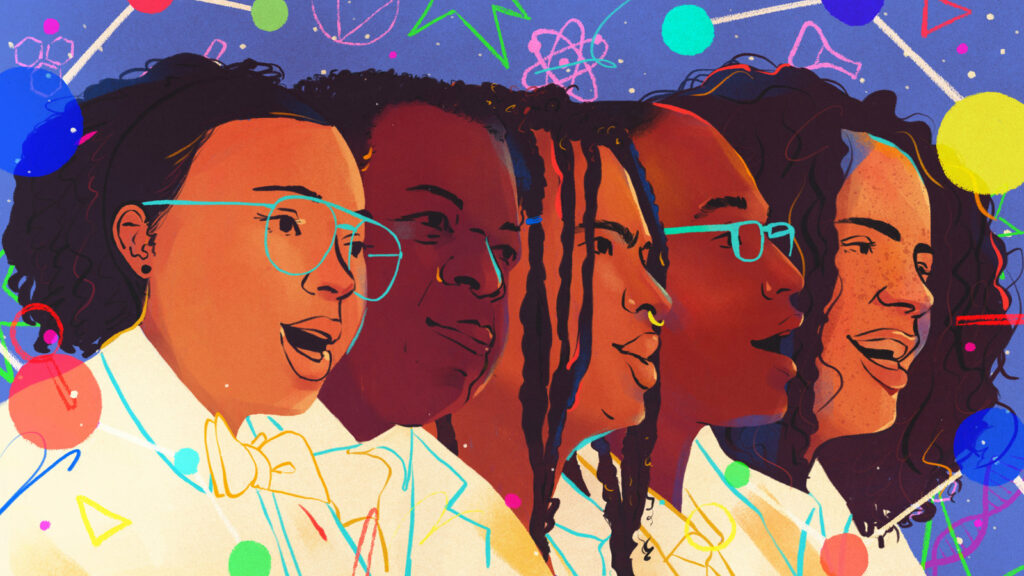Photo courtesy of Kristen Uroda for NPR
First celebrated in 1970, Feb. 1 ushered in 2021’s Black History Month. This year’s theme is ‘Black Family: Representation, Identity and Diversity.”
While the month focuses on acknowledging black people’s central role in shaping American history, now, more than ever, is the time to uplift black futures, support black healing, and amplify black voices.
Preceding the record breaking 2020 protests, many Ashland residents turned a blind eye to the rogue valley’s long history of racism and anti-blackness. Kayla Nichols, a SOU student and white ally, describes the Rogue Valley as “adopt(ing) the mentality of being liberal and supporting social movements” while simultaneously ‘allowing’ oppressive groups to exist.
Another student and ally, Jo Renee De Castro, expressed frustration with the community, stating “Most people in the Ashland area are ‘accepting’ while white supremacy is everywhere…there is no equity.”
Following the horrific and unjust hate crime that took Aidan Ellison’s life, as well as racist attacks in the SOU community, it is blindingly apparent that racism thrives in our small town. These events have left both BIPOC and allies frustrated, enraged, and eager to raise their voices for black liberation.
Despite this drive, many white people remain confused and intimidated by engaging in restorative conversations or facing their own privilege. During Black History Month, white Americans need to begin asking: How do we support coalitions that uplift black futures, provide equitable reparations, and enable black people to thrive?
“Allyship is when people are willing to look at their own implicit bias and deal with their blindspots. We need more people who are willing to do that” says Marvin Woodard, SOU’s Equity Coordinator for Racial Justice and a strong black leader in our community. Woodard suggests to “start with yourself,” encouraging white students to begin their activist journeys by reflecting upon their own privilege in a white supremacist society. Woodard also emphasizes that “Allyship is not easy”, but “if you’re a white person and you think activism is not easy… there is nothing more exhausting than being a black person in America.”
To fight burnout, Woodard encourages allies to let go of the “I’ve done my part” sentiment because “there is always something to do”. When the going gets tough, it is imperative to “grab someone (else)…who is ready to engage in this work.”
According to NPR, black activist burnout is particularly intense due to the compounding effects of experiencing daily racism. For this reason, participating in accomplice work as a white person proves integral to the cause. “Engage with us” said Woodard, “Not because [you] want to put a feather in your cap or because you think it’s something you need to do right now…but because you want to make sustainable change.”
Reminiscing about past iterations of the Multicultural Resource Center (MRC), Woodard explains that “there was a moment where you couldn’t tell where the Black Student Union (BSU) ended, where the Latin Student Union (LSU) began, and where the Native American Student Union (NASU) jumped in.” In essence, “they found a way to become something so much more than a singular club. They became a coalition.”
Dedicating time to holistic community building is imperative to our fight for black liberation. Mr. Woodard explains, “nothing happens with one person…we need to re-engage in coalition building.”
In addition to our conversations about white allyship, Woodard also made a plea for black students to engage with local politics. “Ashland, sometimes, needs to realize that there are places that are not very welcoming to any student of color, more or less black students.” In order to respond to this problem, “black students need to engage in the politics of the city… Black Professionals– Black people, period…. we can’t disengage”.
To facilitate this engagement, it is up to white people to participate in the heavy lifting and to practice self education while vehemently avoiding overpowering black voices. “Get uncomfortable and be okay with not being the one in power” says Woodard, “We don’t want to have another Black History Month where we are having a year of lives being lost to police violence– to a white supremacist society.”
If you are white and interested in engaging in these conversations on-campus, the MRC and GSJ facilitate many white affinity spaces. A follow up ‘White in the Fight’ event, happening Feb. 23, will be a space for white activists and allies to learn about how to better support the BIPOC community. If you are unable to attend, there will be many more opportunities to engage in this important conversation.
The bell has been ringing. People have been speaking out. If you are not actively working to deconstruct anti-blackness or working towards coalition building, you are part of the problem.



